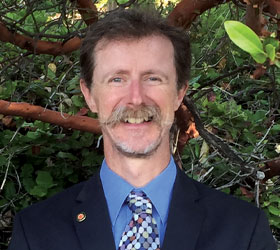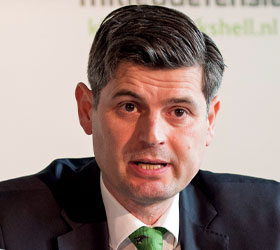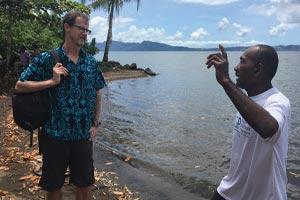The climate crisis: turning the tide
Ruth Green, IBA Multimedia Journalist

Scientific evidence has established beyond doubt that climate change needs to be addressed, and urgently. Global Insight assesses how civil society and strategic litigation are forcing corporations and governments to take long overdue action.
It’s less than a year since the Intergovernmental Panel on Climate Change (IPCC) delivered the news that nobody wanted to hear: temperatures are rising and time is already running out. The IPCC report called for ‘rapid, far-reaching and unprecedented changes’ to keep global warming to 1.5°C and curb climate change. Two days after the report came out, Mary Robinson, President of the Mary Robinson Foundation – Climate Justice and former UN Special Envoy for Climate Change, told Global Insight she hoped the report would be a ‘sufficient wake-up call for the world’.
Demands for urgent action have become ever more intense, from the highest echelons of the UN to the hundreds of thousands of schoolchildren in 110 countries going on strike. Meanwhile, there’s been wave after wave of civil disobedience and protest around the world, with notable civil society groups emerging, such as the gilets jaunes in France, Extinction Rebellion in the UK and the Collective Climate Justice group targeting Swiss banks in Zurich.
Courts worldwide have witnessed a swiftly rising tide of climate-related lawsuits. Yet business interests are still staunchly defended. This was all too evident when a Saudi-led group of oil-producing nations ensured that the IPCC report received little more than a cursory mention during the recent UN Climate Conference in Bonn.
It also says much about the thinking of governments that the IPCC’s recommendations, which include 6,000 scientific references by 91 authors and review editors across 40 countries, could be reduced to five paltry paragraphs during the climate talks in June. That same week, four Central European nations blocked a deal that would have committed all EU governments to reaching the IPCC’s ‘net zero’ emissions target by 2050.
Clearly the alarm bells are still not ringing loudly enough for some. ‘I would say unfortunately that the majority of the world’s countries are not responding adequately to the challenge that scientists laid down,’ says David Boyd, UN Special Rapporteur on human rights and the environment. ‘We can’t just continue tinkering. We need to really make some substantial and significant changes in the way we live, the way we produce energy, the way that we treat our world, the way we treat the world’s forests and the way we produce our food.’
Boyd points to another report, this time by the International Energy Agency, which outlines concerns that investment in low-carbon energy is ‘stalling’ and requires ‘a rapid boost’ to keep the goals of the Paris Agreement firmly in sight. ‘This is three years after the Paris Agreement and we’re still seeing more money being invested in fossil fuels than renewable energy,’ says Boyd. ‘That’s absolutely the opposite of the direction that we must head.’
Some communities have taken the issue into their own hands. In 2013, Typhoon Haiyan devastated the southern part of the Philippines, killing more than 6,000 people. Two years later, in 2015, Greenpeace Southeast Asia, alongside typhoon victims and concerned citizens, issued a complaint to the country’s national human rights institution, citing evidence that ‘human-induced climate change’ contributed to the deadly typhoon. They argue that 47 carbon majors should be ‘held accountable for violations or threats of violations of Filipinos’ rights... resulting from the adverse impacts of climate change’.
The Commission on Human Rights of the Philippines (CHR) launched a national inquiry the same year, marking the first time such a commission has taken on a case that frames climate change as a human rights issue.
Despite its name, the CHR does not have powers to investigate allegations of human rights violations. The Philippines’ Constitution permits the CHR to look only into potential infringements of civil and political rights. ‘We’ve said that human rights are integrated, they’re indivisible, that one cannot discuss or consider civil political rights without also looking into economic, social and cultural rights,’ says Commissioner Roberto Cadiz, who led the inquiry. ‘Besides, climate change involves the right to life where people die because of typhoons. That’s the most fundamental civil right.’
It was also important to Cadiz that the inquiry’s scope went beyond the Philippines. ‘We decided that the inquiry should be global because climate change is a global issue,’ he says. ‘In the first place, the petition alleged that the big contributors to climate change were the big companies – the so-called carbon majors – and most of them are not present in the Philippines. The sources – the contributors to climate change The CHR embarked on a ‘global dialogue’ and held 12 hearings in Manila, New York and London over a three-year period. There were witness statements from 26 communities and 52 experts. The 47 named carbon majors were invited to take part, but declined.
A spokesperson for Royal Dutch Shell, one of these companies, told Global Insight: ‘Shell has great respect for the Commission on Human Rights of the Philippines. However, the issues raised here fall outside the Commission’s mandate. Our position is that the mandate of the CHR does not extend to the environmental matters raised in this petition.’ A spokesperson for another, BP, declined to comment altogether on the process.
Cadiz and his team are analysing their findings and plan to publish a report in November, just in time for the next UN Climate Change Conference in Santiago in December. Jasper Teulings, General Counsel at Greenpeace, says the report could be hugely important in the global fight to bring accountability for climate change. ‘It could result in the first-ever legal finding on corporate responsibility for the climate crisis,’ he says. ‘And in so doing, lay the foundations for accountability in other forums. I think the potential impact of a case like this goes well beyond its national borders.’
Litigating for change
Yet, as the IPCC’s report has shown, there’s still a considerable way to go before some states and companies fully grasp the drastic measures that need to be taken. In the absence of legislative and corporate action, civil disobedience by groups such as Extinction Rebellion and the rising tide of litigation are being viewed as the most effective ways to force the urgent change required to protect the global environment.
In 2015, a case brought by the Urgenda Foundation in the Netherlands argued that the Dutch government has a legal duty to prevent climate change. In October 2018, the Court of Appeal in The Hague agreed with the District Court’s view that the government should reduce its greenhouse gas emissions by at least 25 per cent by the end of 2020.

“The Commission on Human Rights of the Philippines report could result in the first-ever legal finding on corporate responsibility for the climate crisis
Jasper Teulings, General Counsel, Greenpeace
The government has appealed against the ruling, but the case has already had an impact. ‘The Dutch government has, since the Urgenda win, been on the back foot in having to explain why they’re not meeting the very same obligations that they’d signed on to,’ says Teulings. ‘It’s shifted the political debate in society and in politics. It’s holding their feet to the fire. And this is needed.’ Roger Cox, a partner at Paulussen Advocaten, led the Urgenda case in the District Court in 2015.
He is now taking on a similar claim against the Belgian government and is representing Friends of the Earth Netherlands in a separate lawsuit against Shell which alleges that the company’s business model is ‘incompatible’ with the goals set out in Paris.
Like Urgenda, he hopes the Friends of the Earth case in the Netherlands will spark much-needed debate and a change in thinking.
‘We want the big players in the current energy system to transform in a way that is compatible with the Paris Agreement,’ he says. ‘That means do your proportionate share in keeping warming well below 2°C or preferably not above 1.5°C, which is the main goal of the Paris Agreement.’ Shell has until November to draft a response to the plaintiffs’ 250-page writ.
‘We agree that action is needed now on climate change, so we fully support the Paris Agreement and the need for society to transition to a lower-carbon future,’ a Shell spokesperson tells Global Insight. ‘We’re committed to playing our part, by addressing our own emissions and helping customers to reduce theirs. We will respond clearly and robustly to the details of the case in court, but we do not believe the courtroom is the right venue to address the global challenge of climate change.’
Establishing liability in a climate change lawsuit is challenging. ‘Part of the difficulty in trying to seek corporate liability is that you would expect that companies would be operating within the boundaries of what’s permissible under law,’ says Rae Lindsay, a partner at Clifford Chance and Co-Chair of the IBA Business Human Rights Committee. ‘The big question is whether it’s been a failure of policy and regulation by governments or the international community as they set the standards.’
Lindsay says it is always difficult to establish a ‘causal link’ between a particular entity’s activities and an impact that has occurred, often on the other side of the world – which is why the CHR’s inquiry is so significant.
Some have voiced concerns that litigation against oil majors risks distracting from the big picture. ‘Big oil is not the problem, it is part of the problem,’ says Jaap Spier, Professor of Law and Global Challenges at the University of Amsterdam’s Faculty of Law. ‘This focus makes it too easy for others to lean backwards, arguing “we are not the problem, so we can basically stick to business as usual”.
‘The argument increasingly is: big oil was aware of the consequences of CO2 emissions,’ says Spier. ‘That is true, but at least as from the early 1990s – and probably earlier – the same goes for fully industrialised countries. We need bold action without further delays. But let’s please accept that all of us have to change course significantly.’

“Three years after the Paris Agreement, we’re still seeing more money being invested in fossil fuels than renewable energy. That’s absolutely the opposite of the direction that we must head
David Boyd, UN Special Rapporteur on human rights and the environment
Lina Pimental Garcia, Senior Vice-Chair of the IBA Environment, Health and Safety Law Committee, says litigation may put pressure on certain industries to reduce emissions, but agrees this is only part of the solution. ‘The issue is much more complex and there are a lot more actions that can be performed than just reducing the emission of greenhouse gases, such as forest restoration programmes, that could very well be carried out by several companies,’ she says.

“Getting the judiciary involved in these very important questions is something that is almost an ethical obligation
Roger Cox, Partner, Paulussen Advocaten
Cox believes strategic litigation can be a powerful and positive agent for change. ‘If the IPCC is right – and there’s no doubting that this is the best science out there – now we’re creating worldwide destruction to our ecosystems with consequences for humanity,’ says Cox. ‘There must be enough wisdom in our legal system to cope with this problem and steer it in the right direction. Getting the judiciary involved in these very important questions is something that is almost an ethical obligation.’
Teulings agrees that the courts have a pivotal role to play. ‘I think [the courts] are clearly communicating vessels and the longer governments and corporations fail to live up to the obligations that rest on them, the more of a mandate is given to the courts to intervene. This mandate is generated by the inaction of those that need to act. If they were to take their responsibility, there would be no mandate, there would be no need, there would be no problem.’
Of course, if corporations don’t change their ways and governments don’t legislate, others will feel compelled to act. One of the most striking aspects of the climate change debate over the past 18 months has been the engagement of civil society groups and particularly young people, both inside and outside the courtroom. While groups such as Extinction Rebellion and Collective Climate Justice Group have led significant civil disobedience in the UK, France and elsewhere, Swedish teenage climate activist Greta Thunberg has become the face of the global school walkouts. These have seen tens of thousands of schoolchildren take to the streets to demand that governments safeguard their future.
World first: small islands facing ‘existential threat’

Boigu Island after sea inundation from a ‘king tide’ event, or exceptional high tide, which happens at least once a year © ClientEarth
In May 2019, citizens from a group of islands off the northern tip of Queensland filed a claim against the Australian federal government, alleging it has violated their fundamental human rights by failing to address climate change.
This claim, launched by the Torres Strait Islanders, is the first climate change litigation brought against the Australian government on human rights grounds. Sophie Marjanac, a lawyer at ClientEarth who is leading the case, says the case is unique. ‘This is a world first,’ she says. ‘Although Palau and Micronesia have made attempts in the past to move towards climate change litigation, they’ve never actually succeeded, so this is the first time that people from very low-lying islands that are at risk of dispossession have taken action against a nation state for the impact of climate change.’
The claim has been filed with the UN Human Rights Committee. Marjanac is encouraged by the treaty body’s recent steps to recognise the fundamental link between climate change and human rights.

David Boyd and Sailosi, a community leader, at the former village site of Vunidogoloa, one of the first communities in the world that had to be relocated in land because of climate change © David Boyd
‘For us, what’s really interesting and helpful are the moves and statements that are coming out of the UN Human Rights Committee, which has been saying more and more about the climate change impacts on human rights in the past few years.’
Although it could take up to three years to receive a decision from the Committee, Marjanac says the case could inspire other claims.
‘States have to reduce emissions to be in line with 1.5°C goal of the Paris Agreement in order to protect human rights,’ she says. ‘It’s not just our clients, but people living on other low-lying islands that are really at risk of sea level rise.’
David Boyd, UN Special Rapporteur on human rights and the environment, visited Fiji in 2018 and says the adverse impacts of climate change were plain to see. ‘I visited one of the first communities in the world that had to be relocated because of the impacts of climate change,’ he says. ‘It was really heartbreaking to see the change in the people’s quality of life as a result of having to move from a beautiful oceanfront village to a kind of scraped-off hillside two kilometres inland.’
Boyd says Fiji has been a ‘huge voice’ for small island states fighting for climate justice. ‘For a country of less than a million people, their voice on climate change has been disproportionately large and continued,’ he says. ‘They continue to really strongly advocate for more, faster action to deal with this existential threat to small island states.’
In April 2018, the Supreme Court of Colombia ruled in favour of a group of 25 children and youth, arguing that their constitutional right to a healthy environment was being violated by deforestation in the Amazon. This was a significant decision, not least because deforestation is the second-largest contributor to climate change, but a report by the World Resources Institute also concluded in 2018 that Colombia had the fourth-greatest loss of primary rainforest of any country in the world.
The Supreme Court ordered the government to comply with its international commitments to reduce deforestation to net zero by 2020. One year on, it’s still unclear what progress to date has been made to guarantee the country will reach these goals. However, Boyd says cases like this and the Urgenda claim are having an impact. ‘Their importance may actually be greater in the court of public opinion,’ he says. ‘They have drawn so much attention to this issue, with such authority and legitimacy, that I think it’s starting to turn the ship around in terms of convincing governments that actually, not only do they have a legal and moral obligation, but it’s in their political interests to accelerate the pace of climate action as well.’
The amount of climate-related litigation continues to grow fast. More than 1,300 legal actions have been launched across 28 jurisdictions since 1990, according to a report by he Grantham Institute and the London School of Economics. Teulings says the value in such cases lies in the fact that they encourage communities – young and old – to keep the pressure on governments to act. ‘It’s in the journey, because of the empowerment that’s happening for these impacted communities,’ he says. ‘It’s for the space that it creates for regulation; the signals these lawsuits send; the awareness that they raise. We have ample historical evidence, from the civil rights movement to the suffragette movement, that strategic litigation really can bring about change. And that’s why I’m a firm believer in that.’
Underneath the greenwash
While lawsuits continue to work their way through the courts worldwide, there are encouraging signs that the human rights and climate change nexus is being acknowledged at a supranational level.
In October 2018, the UN Human Rights Committee recognised the relationship between the right to life and environmental degradation and climate change. In April, the US government was asked to provide information on its policies and measures to protect the right to life from the adverse impacts of climate change. Lucy McKernan, the Geneva Representative of the Global Initiative for Economic, Social and Cultural Rights, says these moves mark a significant shift at the UN level. ‘It was a big jump for them to move into looking at issues like climate change,’ she says. ‘We will be encouraging the Committee to take mitigation measures to prevent and tackle the US on, for instance, the recent announcements on moving back to coal.’ Such moves and statements could also support efforts by low-lying islands that are most vulnerable to climate change to bring governments to account (see box: ’).
Greenwashing – whereby PR claims about environmental credentials are used to distort the reality – is a practice normally associated with large corporations. This has been a prominent theme recently with oil companies coming in for criticism for their overblown claims regarding investment in renewable energy, for example. ‘I think there’s an opportunity for the US to try to skirt around it and really focus on adaptation because it’s easier for them to show the measures they’re [already] taking to protect life,’ says McKernan. ‘The other measures are more preventative and looking forward.’
At the UN level, Boyd is already working to address this issue. He will present a report at the next UN General Assembly that will put forward obligations on states to curb the activities of corporations in order to protect human rights from the impacts of climate change. ‘States have failed in their obligation to properly regulate these companies to reduce their emissions and to protect people,’ he says.
As the gilets jaunes movement in France has shown, where the onus is placed for addressing the climate crisis is important. Measures like carbon taxes that hit individuals already struggling with shrinking incomes and rising living costs have prompted civil disobedience. Boyd believes it’s up to states to ensure the burden of such policies does not fall solely on consumers: ‘We need states to step up to the plate and find ways of basically internalising the costs of these emissions that have been borne by society and should really be borne by these companies.’
In 2003, the World Health Organization established the Framework Convention on Tobacco Control, which contains specific provisions preventing tobacco companies from participating in developing public health policy. Boyd says a similarly drastic approach may be required to tackle the climate crisis. ‘Given their major role in causing climate change, given the duplicitous way that they’ve attempted to undermine the science of climate change, and given their lobbying efforts to block progress in tackling climate change, I think we need to consider doing something similar with the carbon majors,’ he says. ‘That is, excluding them from participating in the development of climate policy, energy policy and environmental policy.’
Teulings agrees that businesses, just as much as governments, must protect people from harm. ‘There is a duty to respect on the part of the corporations, which is of a less strict nature than the one that’s resting on governments, but it is there nonetheless,’ he says. ‘The longer they wait, the more they become part of the problem rather than the solution. All the fossil fuel companies… are facing a rapidly eroding social licence to operate and even exist. This is crucial for them to retain such huge influence over our national and international politics and regulation. They’re in serious danger of losing this influence.’
Ruth Green is a Multimedia Journalist at the IBA and can be contacted at ruth.green@int-bar.org
